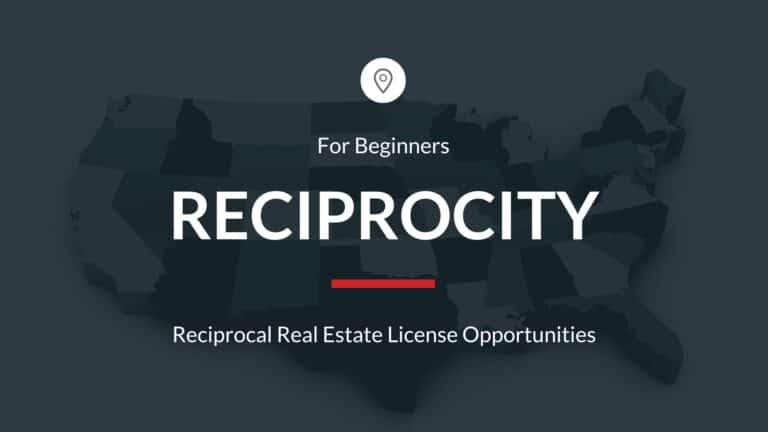How to Choose a Target Market for Your Real Estate Business
The real estate industry is highly competitive, and as such, it’s essential to have a target market for your business. Choosing a target market for your real estate business will help you focus your resources and increase the chances of success. This article will discuss the importance of choosing a target market for your real estate business and the benefits of targeting a specific audience.
Importance of Choosing a Target Market for Your Real Estate Business
Choosing a target market for your real estate business is crucial in today’s highly competitive industry. The first step in building a successful business is identifying who your ideal customer is.
If you try to appeal to everyone, you’ll end up appealing to no one. By selecting a specific group or niche, you can tailor your marketing efforts more effectively while providing better services that meet their needs.
When you choose to focus on one particular area, you become known as an expert in that space. As such, clients seeking properties in that area are more likely to come to you because they perceive you as an authority figure in that location rather than just another generalist agency.
Benefits of Targeting A Specific Audience
The advantages of targeting specific audiences are many. When you know exactly what type of customer you’re going after, it becomes easier to communicate with them effectively and provide personalized service tailored specifically for their needs. You can also craft effective marketing campaigns that speak directly to their interests and desires, making them more likely to engage with your brand.
When potential clients feel like they’re seen and catered by an organization rather than just treated like another transaction or commission source – they’re more prone towards trusting and sticking with what they cherish so much. A targeted audience also allows agents or agencies gain insights into certain trends or changes within their specific niche.
It’s easier to understand the market’s needs and hence provide better guidance or advice on properties to invest in, thereby gaining a competitive advantage over other general real estate companies. Targeting a specified audience is essential for any real estate business seeking to succeed in today’s industry.
When you focus your efforts on your target market, you can provide more personalized service, build expertise, and create more effective marketing campaigns that resonate deeply with your ideal customer base. The rest of the article will delve into different steps to follow when selecting a target market for your real estate business.
Define Your Business Goals
Before choosing a target market for your real estate business, it is essential to define your business goals. This means identifying your objectives and determining what you want to achieve in the long term.
By having a clear understanding of what you hope to achieve, you can better tailor your marketing efforts towards the right audience. One crucial aspect of defining your business goals is deciding on the type of properties you want to specialize in.
Whether it is residential or commercial properties, it is important to choose an area that aligns with your interests and expertise. You may also want to consider focusing on a specific niche such as luxury homes or investment properties, depending on the market demand and competition in your area.
As part of defining your business goals, it is also important to take into account factors such as budget and resources. Consider how much time and money you have available for marketing efforts and decide which strategies will be most effective within those constraints.
Identify Your Business Objectives and Long-Term Goals
Your objectives should be specific, measurable, achievable, relevant, and time-bound (SMART). For example, one objective could be increasing sales revenue by 10% within the next six months. Another objective could be expanding into a new geographic market or establishing partnerships with other businesses.
In addition to short-term objectives, it is also essential to identify long-term goals for your real estate business. This will help guide decisions when choosing a target market since different audiences may align better with certain long-term goals than others.
Examples of long-term goals could include building brand awareness in a particular geographic region or expanding into new markets over the next few years. Having these goals in mind will make it easier to determine which target audience will help you achieve them more effectively.
Determine the Type of Properties You Want to Specialize In
When determining the type of properties you want to specialize in, consider your expertise and interests, as well as market demand in your area. For example, if you have experience and knowledge in commercial real estate, it may be beneficial to specialize in that area rather than trying to target both residential and commercial markets.
Alternatively, if there is high demand for a particular type of property such as luxury homes or vacation rentals in your area, specializing in those areas could help you stand out from competitors and attract more business. Ultimately, by identifying your business objectives and long-term goals while also considering your interests and expertise, you can narrow down the pool of potential target markets and focus on those most likely to bring success to your real estate business.
Analyze Demographics and Psychographics
Researching Demographics
When choosing a target market for your real estate business, it’s important to research demographics such as age, income, education level, and family size. This information can provide valuable insight into the type of properties that would be most appealing to your target audience. For example, if you’re targeting young families with children, you might want to focus on homes with multiple bedrooms and large backyards.
You can research demographics using a variety of sources including government data, market research reports, and online tools such as Google Analytics. Once you have this information, you can use it to create buyer personas – detailed profiles of your ideal customers that will help guide your marketing efforts.
Understanding Psychographics
In addition to demographics, it’s also important to understand psychographics – the study of personality, values, attitudes, interests and lifestyles. Psychographic data can provide insights into what motivates your target audience and what their buying habits are likely to be.
To gather psychographic data for your real estate business, consider conducting surveys or focus groups that ask questions about hobbies and interests. You may also want to analyze social media trends related to your target audience or use online tools like Facebook Insights to gather more information.
For example, if you find that many of your target customers are environmentally conscious and interested in sustainable living practices, you may want to focus on properties with eco-friendly features like solar panels or energy-efficient appliances. Understanding psychographics can help you tailor your marketing messages in a way that resonates with your target audience – ultimately leading to more successful sales efforts.
Combining Demographic & Psychographic Data
By combining demographic and psychographic data about your target market for real estate purposes , you can gain a much clearer understanding of who they are as individuals – their motivations, attitudes, and lifestyle habits. This information can help inform your marketing approach as well as the properties you choose to specialize in.
For example, say your research shows that your target audience is primarily made up of young professionals who value a work-life balance and enjoy activities like hiking and yoga. You may want to focus on properties that are located near hiking trails or have fitness amenities like a yoga studio or gym.
By understanding both the demographic and psychographic data about your target audience, you can create tailored marketing campaigns that are much more likely to resonate with them. This will ultimately result in increased leads and sales for your real estate business.
Evalutate Local Market Conditions
Before selecting your target market, evaluating the local real estate market trends and conditions is essential. Property markets across different areas can vary, so understanding the specific conditions that are affecting the area you want to work in is crucial. When analyzing local market conditions, you want to consider several factors such as supply and demand factors and economic indicators that influence real estate transactions.
Study The Local Real Estate Market Trends And Conditions
The first factor to consider when evaluating local market conditions is studying the latest trends and conditions in the real estate industry. Researching these trends will give you insights on how the property markets are performing in your chosen areas of operation.
You can study recent sales data for different property types and neighborhoods, rental prices, vacancy rates, and other relevant data. Look for patterns or changes that could provide clues about areas poised for growth or decline.
You should also keep up with regulations and legal requirements within your target market. Laws regarding home ownership, zoning restrictions, taxes on property sales or rentals etc., can impact who will be interested in particular properties or neighborhoods.
Analyze Supply And Demand Factors
Another critical factor that will help you evaluate local market conditions is supply and demand factors within a specific area of operation. A good way to gather information about supply and demand factors is by studying demographic patterns throughout a region over time (especially regarding population growth) .
Look at how many homes are being built in each neighborhood compared with how many people are moving into each neighborhood; if there’s more inventory than potential buyers/renters then it might not be a good idea to focus on those neighborhoods if they won’t yield a high return. Additionally , economic indicators such as mortgage interest rates ,jobs reports , predictions of future growth, etc. can also impact supply and demand factors.
Analyzing these factors will help you identify opportunities and determine what kind of properties to focus on in your target market. When analyzing local market conditions, be sure to pay attention to other external factors that could influence the performance of specific property markets such as natural disasters, climate change, or political events that may affect the region.
Identify Your Unique Selling Proposition (USP)
Determine what sets your real estate business apart from competitors
It is important to clearly understand what differentiates your real estate business from others in the industry. By identifying a unique selling proposition (USP), you create a competitive advantage that can be communicated to your target market.
A USP is the aspect of your business that sets it apart from competitors and attracts potential clients. To identify your USP, start by analyzing what you offer that other businesses do not.
This could be a specialized service, exceptional customer service, exclusive access to certain properties or neighborhoods, or a focus on sustainable and eco-friendly homes. Evaluate the strengths and weaknesses of competitors in the market and determine how you can fill any gaps in their services.
Develop a USP that appeals to your target market
Once you have identified your USP, it’s important to tailor it specifically for your target audience. This requires an understanding of their needs, wants, and pain points when it comes to buying or selling real estate. For example, if you specialize in luxury properties but are targeting first-time homebuyers with limited budgets, you may want to emphasize affordability and accessibility rather than exclusivity.
To develop a USP that appeals to your ideal clients, consider conducting surveys or focus groups to gather feedback on what they value most in a real estate agent or company. Use this information as a guide for crafting messaging that resonates with their interests and priorities.
The importance of communicating your USP
Once you have established a strong USP that aligns with the needs of your target market, it’s crucial to effectively communicate this message through all marketing channels. Use consistent branding across all materials such as website copy, social media posts, email newsletters and print advertising ensuring they clearly convey how your services are different from others in the industry.
By clearly communicating your USP, you can attract and retain clients who value what sets you apart from the competition. Keep in mind that your USP may evolve over time as market conditions change, so it’s important to review and refine it to ensure continued success regularly.
Create Buyer Personas
Creating buyer personas is a crucial step in determining your target market. These detailed profiles of your ideal customers help you understand their needs, preferences, challenges, and pain points. By doing so, you can tailor your real estate business to meet the specific demands of your audience.
To create buyer personas effectively, gather data on your current clients or research information about those who fit within your target market. This data should include demographics, psychographics, and behavioral patterns.
Once you have collected this information, use it to develop a profile of each persona. When creating a buyer persona profile, including as much detail as possible is essential.
This can include their age range, income level, education level, marital status, family size and structure and many other relevant factors to purchasing a property. The more detailed the profile is, the better you will understand how to target them.
[wpdatatable id=1]
Develop Detailed Profiles of Your Ideal Customers
Developing detailed profiles of ideal customers is not just about demographic data but understanding what motivates them to purchase the property. For example:
– First-time homebuyers might prioritize affordability – A growing family looking for more space and good schools
– Investors seeking properties that generate consistent income Understanding what drives each customer group is essential when developing strategies for targeting them.
This includes everything from marketing campaigns to developing new products or services that meet their needs. To develop compelling profiles for each customer group, consider conducting interviews with current clients or past customers who fit within these categories; gather feedback on what worked well for them in the past and any challenges faced along the way.
Include Information on Their Needs, Preferences, Challenges, and Pain Points
Once you have developed detailed profiles for each customer group or buyer persona – don’t just stop there – go even deeper by understanding their needs, preferences, challenges, and pain points. To illustrate, consider creating a homebuyer persona who is looking for a first-time home.
Their needs and preferences might include: – An affordable property
– Located in a safe neighborhood – With good schools or other amenities nearby
Their challenges and pain points could include: – Difficulty in getting approved for a mortgage
– Scarcity of properties within their budget range – Lack of knowledge about the buying process and navigating real estate jargon
By understanding these factors, you can tailor your marketing messages to resonate with their needs, help guide them through the buying process, and provide property options that solve their pain points. This means you are better equipped to create content around what they want to hear rather than what you think they want to hear, leading to higher conversion rates!
Test Your Target Market Strategy
Now that you have a clear understanding of your target market, it’s time to put your plan to the test. This is a crucial step to ensure that you are reaching the right audience and that they are responding positively to your messages. One effective way to test your strategy is by conducting surveys or focus groups.
Conduct Surveys
Surveys are an excellent tool for gathering feedback from potential customers. You can use online tools such as SurveyMonkey or Google Forms to create and distribute a survey via email, social media, or other marketing channels. The questions in the survey should be designed to gather information on how well your target market resonates with your message, their needs, and whether they would consider doing business with you.
Make sure that you target people who fit within the demographics of your ideal customer profile when sending out surveys. You can also offer incentives such as discounts or freebies to encourage participation.
Hold Focus Groups
Focus groups allow you to have more in-depth conversations with potential customers and get real-time feedback on their thoughts and opinions about your brand. You can organize focus groups by inviting a small group of individuals who fit within the demographics of your target market. During these sessions, ask open-ended questions about how they perceive real estate businesses like yours, what challenges they face when buying/selling property, and what features or benefits would encourage them to choose one company over another.
Refine Your Approach Based on Feedback
After conducting surveys or focus groups, analyze the data collected carefully. Look for patterns in responses and identify areas where you need to adjust or refine your approach.
For instance, if most respondents indicate that they prefer visual content over written content, consider incorporating more images into your marketing materials. Take any negative feedback constructively; it’s an opportunity to make necessary changes.
Use the feedback to refine your message and approach, and then test again until you achieve the desired outcome. Remember that a well-designed, targeted marketing strategy is critical to establishing a profitable real estate business.
Implement Your Target Market Strategy
Develop marketing campaigns targeted at your identified audience
Once you have identified your target market, it’s time to develop marketing campaigns that will resonate with them. Start by creating messaging that speaks directly to their needs and pain points. Use language and imagery that they can relate to and understand.
For example, if you’re targeting first-time homebuyers, focus on the idea of achieving the American Dream of homeownership. Consider using different types of content to reach your audience, such as blog posts, social media updates, videos, infographics or webinars.
Make sure all content is tailored toward your target market and provides value to them. Keep in mind that people consume information in different ways – some prefer reading while others prefer watching or listening.
Utilize appropriate marketing channels such as social media or direct mail
Nowadays, there are many channels available for reaching potential clients in real estate business. Social media is a great tool for building brand awareness and engaging with potential clients; it allows you to create targeted ads based on demographics like age and location.
Direct mail remains an effective way of reaching homeowners who are looking to sell their homes quickly. In addition to these traditional methods, don’t forget about email marketing!
There are plenty of email marketing tools available today that make sending out newsletters or promotional messages simple. Remember: each channel has its own set of strengths and weaknesses so try a variety of techniques until you find what works best for your real estate business.
Conclusion
Choosing a target market for your real estate business is an essential step in building a successful enterprise. By identifying a specific audience, defining goals related to property type and considering factors like demographics/psychographics and current market conditions – developing effective campaigns becomes much easier.
The final step is putting all this information into action by developing targeted campaigns through marketing channels that suit your audience. Experiment with a mix of social media ads, direct mailings, and email marketing until you find the right combination that produces results.
With these steps in mind, you’re on the path to successful real estate business. Remember that your aim is to build long-lasting relationships with your clients so focus on providing quality service at all times.







